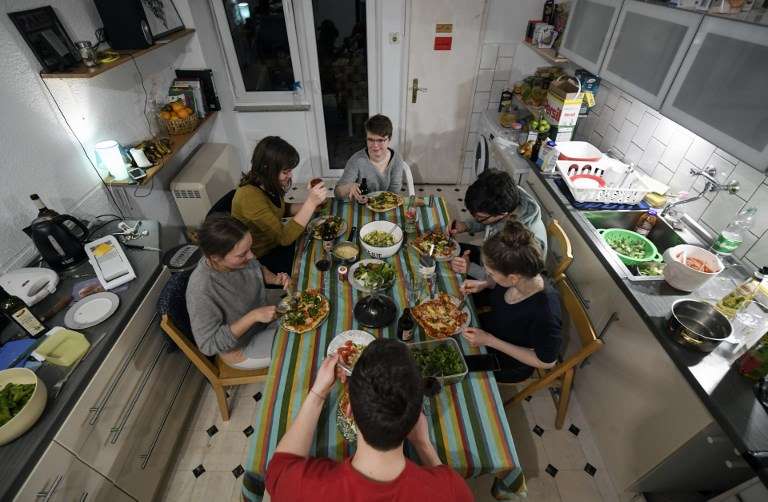Differing interpretations of Belgium's latest Ministerial Decree on the coronavirus rules regarding what is and isn't considered a household are leading to undeserved fines being handed to students living together.
Several students have found themselves in the centre of some confusion over the rules, as the typical Belgian student accommodations with their shared common spaces, also known as "kot", are considered a household by the government - but not by the police.
Over the last two months, police in Leuven, one of Belgium's main student cities, handed out 450 fines, including 280 for "illegal" gatherings outside of the permitted social bubbles, many of which to young people living together in student housing.
Leuven police: 'not considered households'
The police in Leuven get their information about the measures on a local level, according to spokesperson Nicolas De Piero. "We also communicate with Leuven’s university (KU Leuven), which states there should be as little close contact as possible between roommates," he told The Brussels Times.
"Right now, from the latest information we received and according to the Ministerial Decree, these ‘kots’ are not considered households by the police in Leuven,” Del Piero said, adding that fines are still being handed out to students violating the rules in these accommodations.
"No changes have been made to the regulations here, as far as we know,” he said.
This means that when the police are called to inspect illegal gatherings at these types of student accommodations, they do not differentiate between students living there full-time and those going back and forth between their kot and their parents’ homes.
Related News
- 'One measure too many': Belgium urged to abolish curfew
- ‘Underestimation of reality’: 435 people fined for non-essential trips last week
- Foreign students will have one year to find work in Belgium
According to the Leuven chief of police Jean-Paul Mouchaers, these so-called kot parties are increasingly becoming a "pressing problem."
"We always see five to 15 students in a limited space, without face masks or keeping their distance," he said on Flemish radio, adding that the regulations on what is and is not allowed in a student room are still unclear.
In the meantime, the KU Leuven has also advised students to choose between staying at home or in their kot, and to commute between the two as little as possible, according to its press-attaché Katrien Bollen.
"However, it's up to the government to set these guidelines and up to the police to follow them. We can only encourage students to follow them," Bollen said.
Interior Minister: 'all people living under one room are a household'
In contradiction to what the police said, Interior Minister Annelies Verlinden last week announced that students living together could be considered a household, following an incident with four students living together who were fined for violating the measures.
“Students and these ‘kots’ aren’t specifically mentioned in the Ministerial Decree, but it states that all people living under one same roof, and sharing common areas such as living room, kitchen, are considered one household, so this includes students,” Verlinden’s spokesperson, Sofie Demeyer, told The Brussels Times.
Demeyer highlighted the important condition that students can “only be considered one household if they do not go home to their parents” to keep households strictly separate, a condition which is very difficult to prove in practice.
Wrongly handing out fines?
Even though the Interior Minister said earlier this week that the instructions and directives given to the police forces are clear, the police in Leuven continue to hand out fines when too many people are gathered in a kot.
It is possible for one or more police officers to act differently, but "each police force knows what the rules are and how to verify them," said Demeyer.
“The minister writes guidelines, but it is up to the police to decide how they implement them, meaning the minister cannot be responsible for what the police do in carrying this out,” she added.
“If those students think that they have been wrongly fined, they can say that they refuse to pay the fine and then this will go to a judge who will decide who is right," Demeyer said.
Lauren Walker and Maïthé Chini
The Brussels Times

